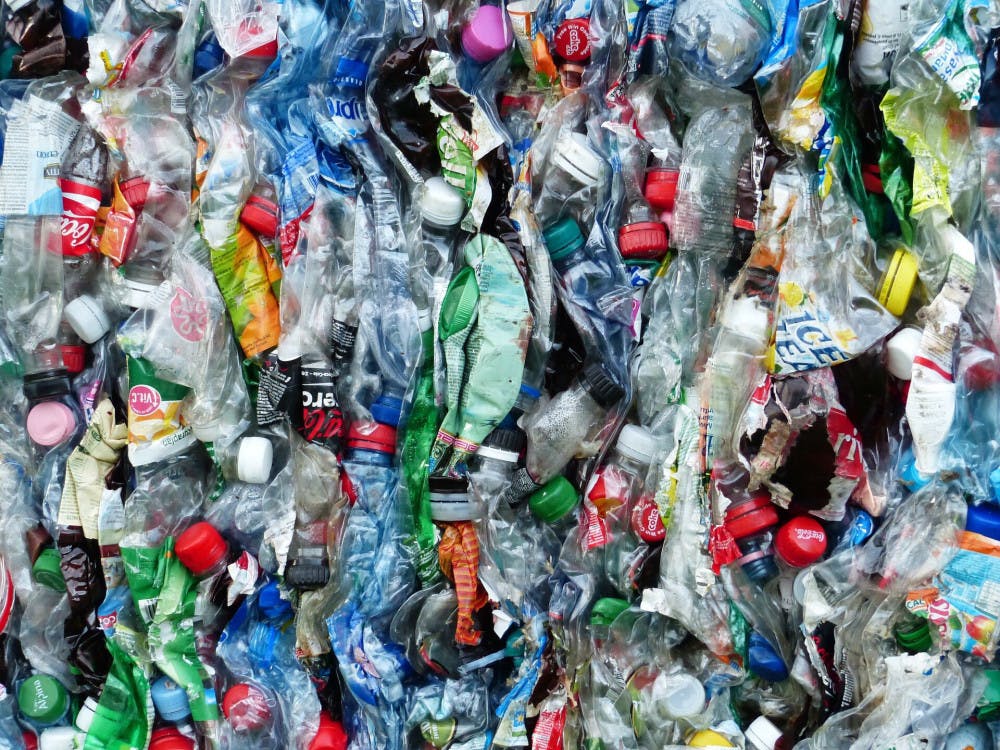By: Taylor McCann
Did you know that around 8.3 billion tons of plastic have been produced since the 1950s, but only 9 percent of it has been recycled? Many well-known companies like Hasbro, Kroger, PepsiCo and Starbucks recognized the depth of statistics like these and decided to take action to decrease the amount of single-use plastics in their products. Although this path is different for each corporation, they all have the same end goal in mind. In an article released back in August, Hasbro, Inc. announced its decision to phase out single-use plastics from new toy and game packaging starting in 2020. This elimination plan will include Hasbro brands like Nerf, My Little Pony, Monopoly, Magic: The Gathering and Power Rangers. Hasbro plans to eliminate all of its plastic packaging, including its polybags, elastic bands, shrink wrap, window sheets and blister packs by the end of 2022, a corporate sustainability venture that has been in the works for over a decade. Hasbro’s decision to eliminate plastic packaging isn’t the company’s first effort to reduce its plastic use. Starting in 2010, Hasbro eliminated wire ties from its game and toy packages. In 2016, the company added How2Recycle labeling, and in 2018, Hasbro began using bioPET, a plant-based plastic made from things like molasses, hay and bagasse. BioPET plastics share the same functional characteristics as traditional petroleum-based plastics, but are environmentally friendly. Hasbro also recently launched a toy recycling program with TerraCycle last year that allows users to send in Hasbro toys and games to be recycled into materials for use in the production of play spaces, flowerpots and park benches. Along with Hasbro, The Kroger Company also realized the impact of plastic pollution and is taking action. An article published in 2018 by NPR outlined Kroger’s decision to stop distributing single-use plastic bags across its chains by the year 2025. The phase-out kicked off with Kroger’s Seattle-based chain, QFC, who set a goal to eliminate single-use plastics by this year. In the meantime, the company is encouraging consumers to make the transition to reusable grocery bags. Kroger also offers paper bags at checkout stations for a more environmentally friendly alternative. PepsiCo is also following suit by transitioning its Aquafina water away from plastic bottles. Instead, starting in 2020, the company will begin packaging its water in aluminum cans. Why aluminum? According to the Aluminum Association, the metal is easier to recycle than most other materials and is recycled more often than most other packaging types. Related packaging changes for Pepsico include moves to package its LIFEWTR brand in 100% recycled PET and remove plastic packaging from their flavored water brand, Bubly. As stated in a company press release, these decisions will "eliminate more than 8,000 metric tons of virgin plastic and approximately 11,000 metric tons of greenhouse gas emissions." By 2025, PepsiCo has set a goal to make 100 percent of its packaging recyclable, compostable or biodegradable and use 25 percent recycled plastic in all of their plastic packaging. Following close behind in the fight to decrease single-use plastics is Starbucks Coffee Company. The last time you purchased a cold beverage at one of their stores, you may have noticed that Starbucks’ trademark green straw was missing: back in July 2018, Starbucks announced its decision to eliminate plastic straws from over 28,000 of its stores. Starbucks’ straw-less lids are available in over 8,000 of its locations. Next, the coffee company will be releasing straws made out of other materials such as paper or compostable plastic for its blended drinks and customers who need or prefer to have a straw. Leading companies like the ones mentioned above have the capacity to convince many other corporations to work towards zero plastic in their products and packaging. In a way, the race towards zero plastic has prompted a game of follow-the-leader among corporations. Hasbro, Kroger, PepsiCo and Starbucks have established large goals to combat plastic pollution, which can take many years to fully implement. While these companies are working hard to reach their goals, here are some tips on how you can decrease single-use plastics in your everyday life:-Use reusable bags or paper ones when you go clothes or grocery shopping.-Use a reusable plastic or metal water bottle instead of single-use plastic ones.-Carry reusable utensils in your bag with you! You can whip them out anytime you eat somewhere that only offers plastic forks, straws, or spoons.Cover photo courtesy of Pixabay

